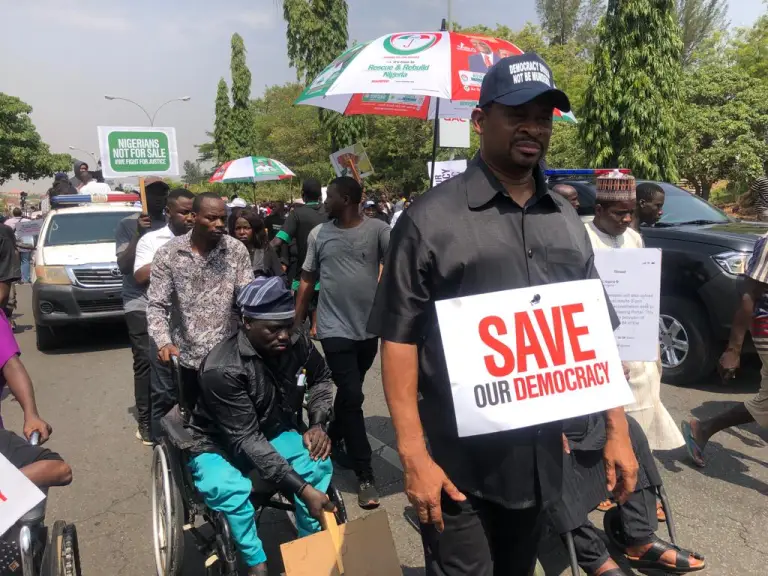NIGERIA’S TRANSITION CAUSES CRACK IN OPEC
• Oil cartel meets Wednesday without substantive president
Aleadership vacuum has emerged at the Organisation of Petroleum Exporting Countries (OPEC) following the dissolution of Nigeria’s Federal Executive Council (FEC) last week, which led to the exit of former Minister of Petroleum Resources, Mrs. Diezani Alison-Madueke, the OPEC’s first female president.
The oil cartel may meet for its extraordinary meeting in Vienna, Austria on Friday without a substantive president, as Alison-Madueke will no longer be eligible to preside over the meeting. A source told New Telegraph that OPEC had earlier sent a correspondence to Nigeria requesting notification of a replacement for Alison- Madueke, who ceased to be Nigeria’s oil minister from last Thursday, when former President Goodluck Jonathan dissolved his cabinet. OPEC had, last November, elected Alison-Madueke as its first female president at the oil body’s 166th ordinary meeting in Vienna.
She was also appointed President of the Gas Exporting Countries’ Forum last December. “When the cartel meets on June 5, 2015, for its 167th (Ordinary) Meeting in Vienna, Austria, Alison-Madueke would have ended her reign as the Minister of Petroleum Resources. Her chance of retaining the ministerial seat under the government of General Muhammadu Buhari is zero and what this means is that whoever becomes the minister then would replace her in OPEC. “The tradition is that the position is ceded to Nigeria and whoever is representing the country at the organisation automatically occupies the office. The tenure of President Goodluck Jonathan expired on May 29, one week before the 167th ordinary meeting of OPEC.
For now, OPEC is awaiting the expected change of baton in Nigeria and a replacement for its president,” an industry source had earlier told New Telegraph. Meanwhile, the cartel has said that its forthcoming meeting will address the effects of demand and supply of crude on prices of the commodity in the global market.
The commodity prices rose at the weekend, posting a weekly gain on lift from lowered expectations that an agreement on Iran’s nuclear programme will result in a rapid return of more Iranian barrels to the market. The OPEC International Seminar, regarded as one of the premier events on the world energy calendar, will start from Wednesday without a substantive minister from Nigeria. The seminar participants customarily include ministers from OPEC member countries and other oil-producing and oil-consuming nations, as well as heads of intergovernmental organisations, chief executives of national and international oil companies, in addition to other industry leaders, academics, energy experts and the specialist media. Nigeria may be represented by the Permanent Secretary, Ministry of Petroleum Resources, Ambassador Abdul Abdulkadir Musa, at the seminars, which have taken various forms over the years.
The latest in the series of seminars, which, according to OPEC website, began in 2001, has provided fresh impetus to key industry issues and developed existing and new avenues of dialogue and cooperation. Insightful presentations and panel discussions have sought to move the energy debate forward, with high-calibre speakers discussing a wide-range of topical issues affecting the industry, both in the short and long term, against a backdrop of uncertainty and instability. The seminars have increased in size and scope over the years, embracing such related areas as global finance, sustainable development and the environment. While the seminar in 1978 was attended by some 200 participants, there was nearly four times that number over three decades later in 2012.
-New Telegraph



